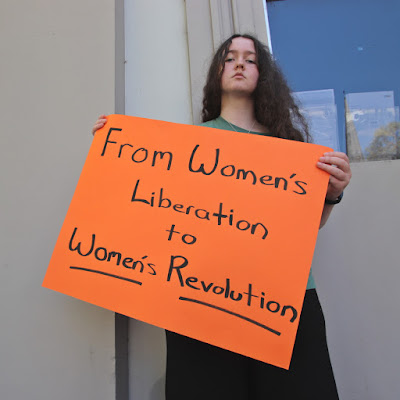The Divine Equality of Modern Feminism
All are equal in the eyes of the Goddess or God. No divine
presence has ever lessened the status of women. The ancient written word is
subject to the culture of patriarchal societies that could not or did not want
to let women fully participate in their religion. The cultural beliefs of men
in positions of religious or political power left most women bereft of education(for
more than 2000 years), the one thing that could have given them equality a lot
sooner than the 20th or 21st century. That said – women still
found an even greater way to communicate with the God of their family or state
religion; by feeling, praying, loving, sensing, listening, teaching, receiving
spiritual guidance, caring for community and using their own unique ritual practices
away from prying eyes.
Women were once currency as slaves, wives and concubines, yet the armoured sisterhood stood with sword and shield in troubled era’s in an effort to be heard and to have equal rights. So don’t sit silently, use your voice and know that millions of women have fought for you! Bless your ancestors and closer relatives, any of them, both male and female that have stood up for equality. Remember that being equal does not lessen the journey of men; it just draws the union closer. Spare a thought for the women who are in countries that did not emerge into the freedom of modern feminism, help them if you can? Delight in your chosen spiritual beliefs and the world is balanced with divine majesty.
The Sage Sharon D Bush
Writer Historian Artisan Sage 



Comments
Post a Comment